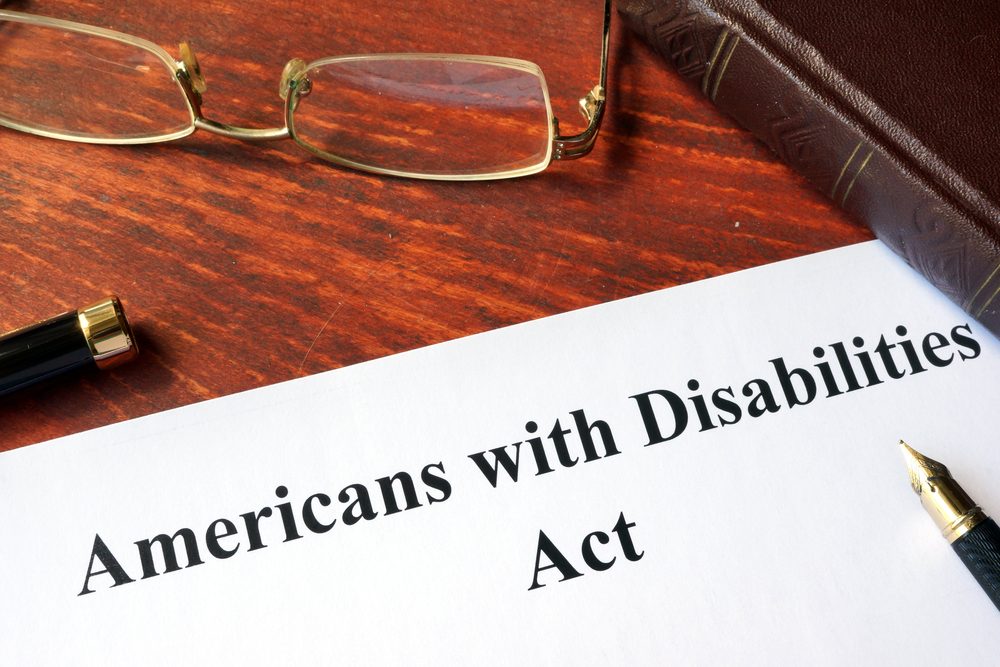How the ADA Accommodates Me in Court
Written by |

Many of us are familiar with the Americans with Disabilities Act (ADA) insofar as it guarantees access to public buildings and reasonable workplace accommodations, and protects against employment discrimination. I recently learned that the ADA also allows for accommodations that I need in the courthouse.
Over the past year, I have attended several proceedings in our county courthouse. The ADA requires accessibility to court proceedings and programs for all people. What I did not understand was that access to participation means more than physical access to the building and accommodations for hearing and vision impairment.
How the ADA helps me
Taking detailed notes helps me process information better and retain it. I have written before about the trouble I have with my hands due to my Ehlers-Danlos syndrome. I prefer to type notes on my tablet, using predictive text, rather than write notes by hand, whenever possible.
The general public is prohibited from bringing cameras and personal electronics, such as cellphones and tablets, into our courthouse. Those can be left with the sheriff’s deputies manning the security check-in point. I have left the courthouse many times with aching hands and nearly illegible handwritten notes.
I’d had a recent run of trouble with my hands, and a conference in the courthouse was approaching. I decided to see if there was any way I could bring in my phone or tablet to take notes. I discovered that the ADA could help me.
The ADA is a federal act, and its accommodation requirements apply to courts in all 50 of the United States, not just mine. Other nations have their own laws ensuring accommodations and protections. If you live outside the U.S. and your country has laws that help you, please share them in the comments section below.
Simple paperwork
On a state government website, I found a downloadable PDF file of an ADA accommodations request form and instructions for sending it in. A search of my county government’s website turned up a form that was essentially the same, but specific to the county.
This form is simple to complete: download, enter text into the text field in the document, include a signature, and email it back. It can just as easily be printed, filled in manually, and returned by fax, email, or regular mail. Courts request advance notice of the need for accommodations — usually three to five business days.
The request form asks for an explanation of how the individual’s disability affects them and what accommodations would be required. I explained my limitations and needs, and requested the use of a phone or tablet to type my notes using predictive text. I clarified that I would be using my own phone or tablet.
I was told that my request was very reasonable, and was granted the use of my personal tablet, provided I used it for the express purpose outlined in the request and did not use it to access the internet or take photographs, which is prohibited in the courthouse. There may be other options available to those without a phone or tablet.
Contact your county’s ADA officer to learn more. If you require a note-taker or the use of equipment, it is good to give the court as much notice as possible in order to arrange the accommodations.
Success!
The security personnel were made aware of my accommodation, and all I had to do was identify myself to them upon arrival. My hands were less painful and I was able to take better notes during this conference than in previous ones.
Your turn
If you have used ADA accommodations in the courtroom and would like to share your experience, please do so in the comments below. I would love to hear from you, and your experience may be of great benefit to fellow EDSers.
***
Note: Ehlers-Danlos News is strictly a news and information website about the disease. It does not provide medical advice, diagnosis, or treatment. This content is not intended to be a substitute for professional medical advice, diagnosis, or treatment. Always seek the advice of your physician or other qualified health provider with any questions you may have regarding a medical condition. Never disregard professional medical advice or delay in seeking it because of something you have read on this website. The opinions expressed in this column are not those of Ehlers-Danlos News or its parent company, Bionews Services, and are intended to spark discussion about issues pertaining to Ehlers-Danlos.



Leave a comment
Fill in the required fields to post. Your email address will not be published.